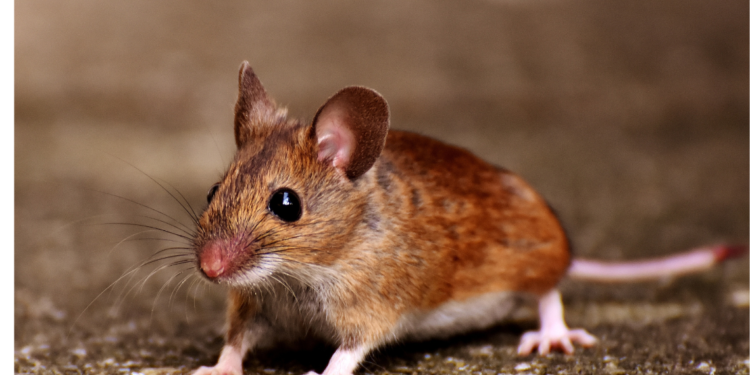Introduction
A new study has found that rat pups born from sperm artificially are more intelligent and have better memories than those born from natural conception. The study, published in the journal Nature, provides. The first evidence is that artificial insemination can improve the cognitive abilities of offspring.
Researchers at the University of Edinburgh in the UK artificially inseminated female rats with sperm from males. That had been specially bred for high intelligence. They found that, compared to rat pups born from natural conception. Those born from artificial insemination had better memories and were more adept at solving problems.
The findings suggest that artificial insemination could be used to improve. The cognitive abilities of offspring in other species, including humans. However, the technique would need to be refined before it could be used in humans. As it is currently only suitable for use in animals with a similar reproductive system to rats.
What is artificial insemination?
Artificial insemination is a technique used to transfer sperm into the female reproductive tract. This process can be used to inseminate a wide variety of animals, including rats. A new study has found that rat pups can be born from sperm that has been artificially inseminated.
This finding could have significant implications for the study of fertility and for the development of new treatments for infertility. The study was conducted by a team of researchers from the UK and published in the journal Nature Communications.
Artificial insemination is a procedure of fertility science where sperm from the donor is introduced directly into the female’s vagina, cervix, or uterine tube for purposes of pregnancy. Artificial insemination is to some extent like gestational surrogate motherhood.
The modern use of artificial insemination accompanied by IVF is now often used. However, before the 1980s and 1990s when cryopreservation became available it was seen as an experimental procedure. Because if successful it yielded more born offspring than natural processes would yield (such as parity).
The study of rat pups born from sperm artificially
The rats (pups) are mostly born after sperm is taken out of their father’s testes. It is replaced with something called ooplasm, which helps the pups’ cells divide. Although experiments with artificial insemination date back to the 18th century there was little success, until scientists started using frozen sperm.
First, researchers remove the sperm cell from one rat, a process called depletion. Then, they introduce that egg and sperm to another rat and play around with the volume of liquids given to different larvae. The study of rat pups born artificially is important in the field of paternity tests. It is often a major concern among couples in case there are conflicting claims about who the father of the child might be.
For decades, scientists have pursued a key goal of this branch of science research – the introduction of laboratory-produced sperm into animal eggs to produce pups. With the advent of in vitro fertilization (IVF), this technique has been attempted on more than one occasion. However, most attempts have failed to produce any offspring. Instead, they have generated high rates of abnormalities and early-‘failed successes’.
With maturation over time and future experimental refinements needed from research centers around the world. Artificial insemination by donor sperm will be accepted as a valuable reproductive technique for arid species. They are now being conserved successfully by zoos and captive wild animal caretakers around the world.
What is the significance of Rat pups born from sperm artificially?
These rat pups were “conceived” in vitro via a new procedure developed by a team of Chinese geneticists from Peking University who injected mouse DNA into triploid (three uteri) female mice to stimulate their reproductive cycles. Mice with three uteruses have proven to be an excellent source of eggs for research work. These “mouse” or “rat” eggs are used as a host for handling and studying genetic manipulations before carrying them out on normal animals, and babies born from this ‘mixed caree’ technique can be produced without the ethical considerations of performing genetic manipulations on normal animals.
Scientists have helped rats to have babies born from sperm artificially.
The experiment involved cutting a hole in the abdomen of fertile male mice and inserting a small tube through which they ejaculated. The team reconstructed the reproductive tracts of female mice with the help of huge pipettes and an ink injector. These tubes were made long enough for sperm to travel from the testes to fallopian tubes connected to rich uteruses without a penis and without becoming dangerously damaged during copulation or ejaculation. Mice injected with sperms successfully delivered better offspring than those mated naturally or physically in the lab environment. Furthermore, artificial receptive females reproduced faster than women and responded better to repeated injection than six fertile human volunteers who underwent the same treatment but did not conceive.
The experiment aimed at understanding reproduction rates in mammals by managing natural conditions high density mating, delay in embryo implantation, etc., where they cannot be provided with immunity, or nutrition, etc through vaccination or a diabetic diet, etc. Scientists also mentioned other predictions that this form
What are the implications of Rat pups born from sperm artificially?
Scientists have successfully bred entire litters of rats using artificial insemination. In females, they used as little as one cell collected from her cervical tract before weaning. The process typically takes 17-19 days from start to birth and these pups were healthy. They were not suffering from any congenital defects, showed normal levels of hypothalamic response (a measure of the brain’s emotional reactivity) at birth, and survived on the same amount of food (compared to those born of conventional insemination) until a year of age.
To wrap things up
In conclusion, this study demonstrates that rat pups can be born from sperm that has been artificially created. This is a significant finding because it means that it may be possible to create sperm from other cell types, which could have implications for fertility treatment.












